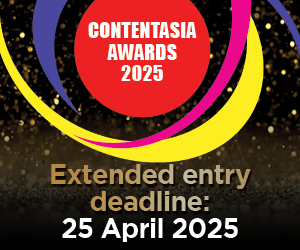
On 2 October, the new leadership of disgraced Japanese talent agency, Johnny & Associates, will unveil their vision for the company’s future beyond compensation and better guardrails.
Meanwhile, Japanese media outlets, including public broadcaster NHK, are scrambling for a narrative that doesn’t lay blame on them for the blind eye they turned on sexual abuse for decades.
At the same time, consumer brands, having bowed to Johnny’s bullying for years, are threatening to ditch the agency and its stars.
All this upheaval, including the resignation of president/sole owner, Julie Fujishima, on 6 Sept, had little to do with any sudden epiphany at Johnny & Associates or courage by powerful mainstream domestic media platforms.
Rather, the dramatic downfall has much to do with journalist and filmmaker Mobeen Azhar’s BBC documentary, "Predator: The Secret Scandal of J-Pop" (March 2023), followed by opposition politicians who picked up the cause, independent investigations and, finally, local media who found their courage in the crowd.
In addition to various firsts, including persuading survivors of sexual abuse by agency founder Johnny Kitagawa to talk on camera, Azhar’s documentary, directed and produced by Megumi Inman, promised to expose “the brutal consequences of turning a blind eye”.
Did Azhar, when he started researching the story in 2019 just after abuser extraordinaire Johnny Kitagawa died, think the media’s overall failure to cover abuse would be such a strong part of his story?
“I didn’t think that there was an entirely joined up reason why the press would have turned their back on this,” he told ContentAsia shortly after Fujishima’s resignation and the opening of media floodgates.
As he explored the story, Azhar and Inman realised the extent of Johnny & Associates control not only of his artists, but of Japanese media as a whole.
“If you’re being kind you can call it soft pressure. If you’re being unkind, you can say they weaponised the control they had,” he says.
“What this meant is that the Japanese press, ultimately, was being censored... and being complicit in self-censoring,” he says, adding t...
On 2 October, the new leadership of disgraced Japanese talent agency, Johnny & Associates, will unveil their vision for the company’s future beyond compensation and better guardrails.
Meanwhile, Japanese media outlets, including public broadcaster NHK, are scrambling for a narrative that doesn’t lay blame on them for the blind eye they turned on sexual abuse for decades.
At the same time, consumer brands, having bowed to Johnny’s bullying for years, are threatening to ditch the agency and its stars.
All this upheaval, including the resignation of president/sole owner, Julie Fujishima, on 6 Sept, had little to do with any sudden epiphany at Johnny & Associates or courage by powerful mainstream domestic media platforms.
Rather, the dramatic downfall has much to do with journalist and filmmaker Mobeen Azhar’s BBC documentary, "Predator: The Secret Scandal of J-Pop" (March 2023), followed by opposition politicians who picked up the cause, independent investigations and, finally, local media who found their courage in the crowd.
In addition to various firsts, including persuading survivors of sexual abuse by agency founder Johnny Kitagawa to talk on camera, Azhar’s documentary, directed and produced by Megumi Inman, promised to expose “the brutal consequences of turning a blind eye”.
Did Azhar, when he started researching the story in 2019 just after abuser extraordinaire Johnny Kitagawa died, think the media’s overall failure to cover abuse would be such a strong part of his story?
“I didn’t think that there was an entirely joined up reason why the press would have turned their back on this,” he told ContentAsia shortly after Fujishima’s resignation and the opening of media floodgates.
As he explored the story, Azhar and Inman realised the extent of Johnny & Associates control not only of his artists, but of Japanese media as a whole.
“If you’re being kind you can call it soft pressure. If you’re being unkind, you can say they weaponised the control they had,” he says.
“What this meant is that the Japanese press, ultimately, was being censored... and being complicit in self-censoring,” he says, adding that Johnny’s “iron fist” didn’t happen overnight. “It was intentionally built up over decades”.
Azhar himself felt the force of Johnny’s power. The company’s communications chief “consistently dismissed the premise of the investigation... just completely refused to engage with the seriousness of what was being asked... about the sexual exploitation of minors, about sexual abuse, about paedophilia, allegations of rape. For a company and someone in a position of responsibility to be so dismissive, I thought was not only distasteful. It was disgraceful, actually,” Azhar says.
It is now a little over six months since "Predator: The Secret Scandal of J-Pop" aired on BBC Two, followed by The United Nations Working Group on Business and Human Rights study as well as an independent investigation in Japan.
“After the documentary came out, all the chatter was online... The majority of Japan’s mainstream press completely ignored the story once again,” Azhar says. It was only after more survivors started coming forward and the independent investigation was announced that Japanese media leaped on board.
Open day on Johnny & Associates dawned once Fujishima resigned on the recommendation of the independent investigators.
Azhar describes that as a pivotal moment. “Since then, I think things have really shifted,” he says. But it’s not enough. “Now the press is reporting the story, but still not really looking at it,” he says, adding: there still isn’t “the emphasis that I would like to see on justice for survivors... there seems to have been a huge emphasis on what Johnny & Associates will do next.”
Published in ContentAsia's 25 September - 1 October 2023 eNewsletter



















